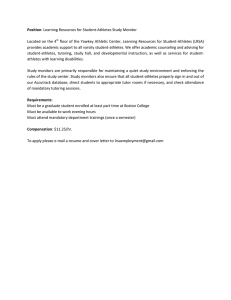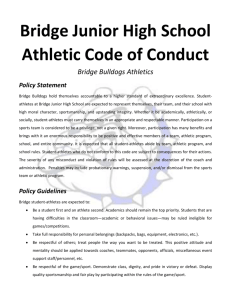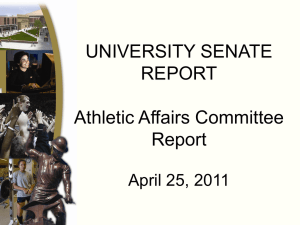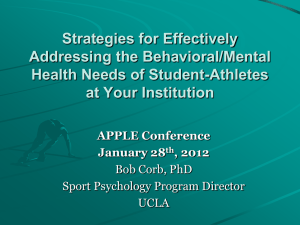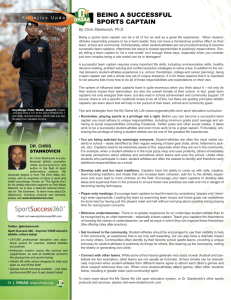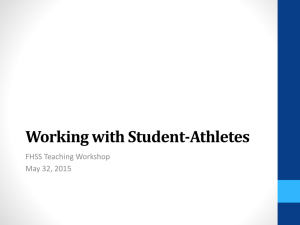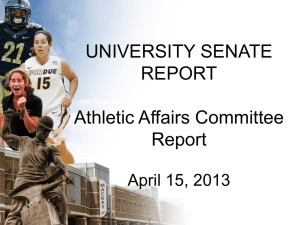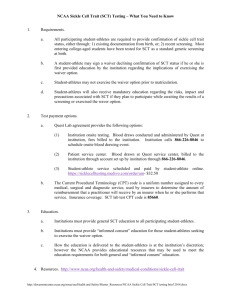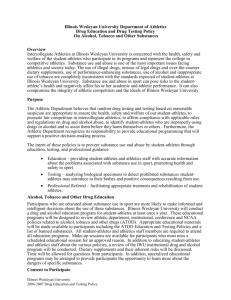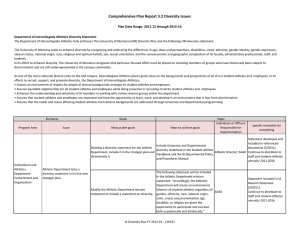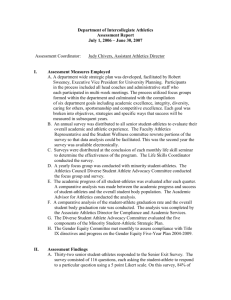THE IMPACT OF THE NCAA`S INCREASED PERCENTAGE
advertisement
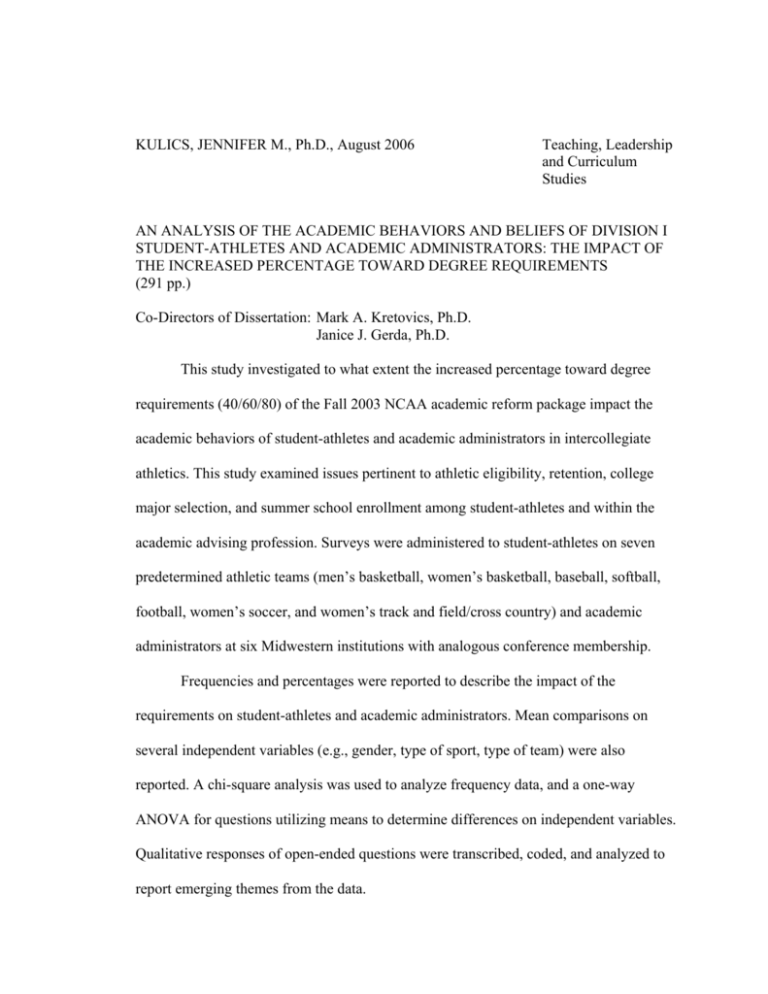
KULICS, JENNIFER M., Ph.D., August 2006 Teaching, Leadership and Curriculum Studies AN ANALYSIS OF THE ACADEMIC BEHAVIORS AND BELIEFS OF DIVISION I STUDENT-ATHLETES AND ACADEMIC ADMINISTRATORS: THE IMPACT OF THE INCREASED PERCENTAGE TOWARD DEGREE REQUIREMENTS (291 pp.) Co-Directors of Dissertation: Mark A. Kretovics, Ph.D. Janice J. Gerda, Ph.D. This study investigated to what extent the increased percentage toward degree requirements (40/60/80) of the Fall 2003 NCAA academic reform package impact the academic behaviors of student-athletes and academic administrators in intercollegiate athletics. This study examined issues pertinent to athletic eligibility, retention, college major selection, and summer school enrollment among student-athletes and within the academic advising profession. Surveys were administered to student-athletes on seven predetermined athletic teams (men’s basketball, women’s basketball, baseball, softball, football, women’s soccer, and women’s track and field/cross country) and academic administrators at six Midwestern institutions with analogous conference membership. Frequencies and percentages were reported to describe the impact of the requirements on student-athletes and academic administrators. Mean comparisons on several independent variables (e.g., gender, type of sport, type of team) were also reported. A chi-square analysis was used to analyze frequency data, and a one-way ANOVA for questions utilizing means to determine differences on independent variables. Qualitative responses of open-ended questions were transcribed, coded, and analyzed to report emerging themes from the data. 2 Student-athletes on all teams expressed positive and negative views of the requirements as well as increased anxiety or pressure when choosing or changing majors. Approximately one out of four student-athletes would change majors if ineligible based on percentage requirements, and over 11% stated that athletic eligibility was a primary reason for their major selection. The impact of the increased percentage requirements warrants concern for the psychosocial and career development of student-athletes. Increases in summer school enrollment predict financial distress for athletic departments as well as probable delays in the career maturity of student-athletes. Academic administrators expressed various unanticipated consequences of the percentage requirements as well as existing challenges for at-risk, high-achieving, and transfer student-athletes. Academic administrators identified how the requirements impact student-athletes and exacerbate role conflict when advising. Differences among gender, type of sport, and type of team indicated some statistically significant results. Future research may include the impact of the percentage requirements on additional reform measures such as the Academic Progress Rate (APR) and the Graduation Success Rate (GSR) as well as on the psychosocial development and career maturity of studentathletes.
